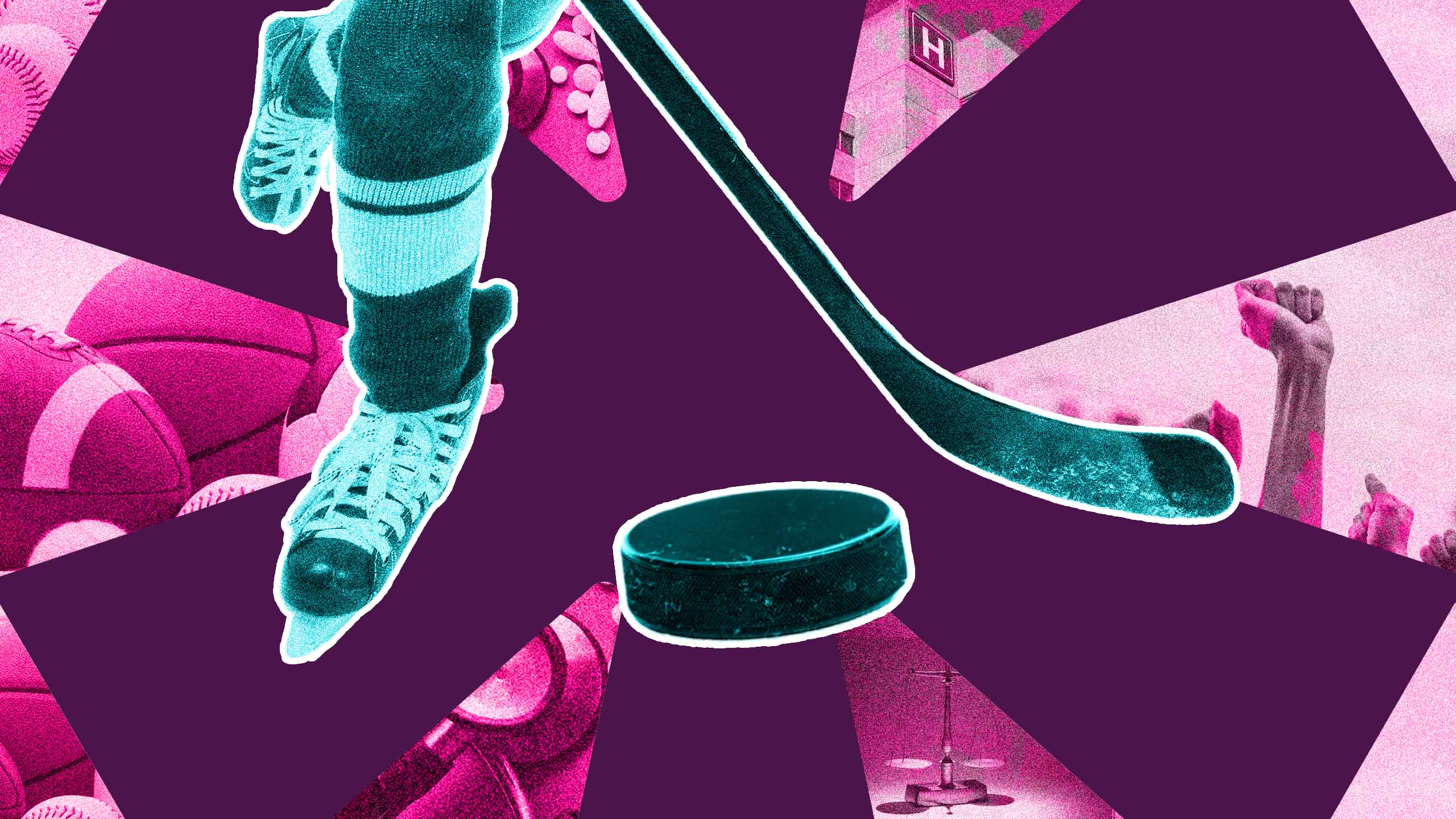Men’s professional sports have never really been a welcoming place for LGBTQ2S+ people. While the women’s side of sports is dominated by high-profile lesbian athletes, openly gay male athletes are few and far between. To try to change the perception that they are closed off to queer people, many team sports franchises have attempted to host Pride nights, a move that has appealed to fans who are some flavour of gay, bi or trans.
Pride nights typically feature rainbow-themed team jerseys or equipment, and welcoming messages by the PA announcer or splashed across the jumbotron. Such events have proven popular with LGBTQ2S+ fans who say they feel welcome to be their whole selves while attending the games of their beloved teams.
There certainly are a fair number of queer sports fans: a 2021 study of sports fans found that about 30 percent of gay men are “passionate” sports fans, compared with 40 percent of straight women and lesbians and 60 percent of straight men.
But a recent trend of athlete rejections of Pride nights have thrown a wrench into the gears of queer inclusion, with several high-profile incidents occurring in the NHL this year.
In January, Philadelphia Flyers defenceman Ivan Provorov decided not to partake in the team’s pregame warm-up because the team was wearing a Pride night warm-up jersey. According to Flyers coach John Tortorella, the jersey conflicted with Provorov’s Russian Orthodox Christian beliefs. Ten days later, the New York Rangers as a team decided not to wear the team’s advertised rainbow-coloured jerseys, nor to use rainbow-coloured stick tape for their Pride night game against the Las Vegas Golden Knights.
After the game, the Rangers released a statement: “Our organization respects the LGBTQ2S+ community and we are proud to bring attention to the important local community organizations as part of another great Pride night. In keeping with our organization’s core values, we support everyone’s individual right to respectfully express their beliefs.”
Two players later anonymously told the NY Post that there were no team discussions about the jerseys and had no idea why the team didn’t wear them.
The Flyers and Rangers aren’t alone, with several other teams running into issues as players have refused to wear Pride-themed jerseys.
I respect that players have the right to choose not to participate in Pride nights generally, but I question the sincerity of players who are claiming their religious beliefs are preventing them from joining this year—especially if they’ve taken part in queer-friendly events during previous seasons.
Pride nights in the NHL are hardly a new concept, after all. The Rangers had held six previous LGBTQ2S+ fan nights before this year, with none of the same uproar.
I suspect there are several factors at play that made this year’s Pride nights a harder sell among pro athletes. For players like Provorov, who is Russian, wearing anything Pride-related may put him in legal trouble back home. In 2013, Russia implemented a harsh law banning “LGBTQ propaganda” from being exposed to children in their country. A new law signed by President Vladimir Putin in December expanded the ban to all “LGBTQ propaganda” from being spread to Russians of any age.
“Attacks against queer and trans people—and resulting controversy—have made pro athlete participation in team Pride nights hyper-politicized.”
It’s a clear escalation in an already fiercely homophobic nation reminiscent of the many “Don’t Say Gay” bills that have either already passed in places like Florida or have been proposed in other conservative state legislatures across the U.S. That trend could be scaring overseas Russian athletes away from partaking in NHL Pride nights. Athletes’ pre-existing religious beliefs could also be at play.
Similarly, queerphobia has been sharply on the rise in the U.S. and Canada this year, driven largely by anti-trans sentiment.
Perhaps the political attacks against queer and trans people—and resulting controversy— have made pro athlete participation in team Pride nights hyper-politicized. It feels to me like there’s seemingly been a negative turn on queer acceptance in North America as of late and the international discussion of trans people’s rights is much to blame.
Previously, Pride was mostly associated with married gay couples in the wake of the Obergefell decision guaranteeing marriage equality in the U.S., but religious and social conservatives have found trans rights a useful wedge to peel off trans-queasy liberals, and their key to success is ever more outrage.
The increasing visibility of trans people have even prompted “Drop the T”-type campaigns from conservative and transphobic LGBs seeking to separate trans people from the larger queer rights fight. I suspect these campaigns are birthed from a combination of anti-trans bigotry and a sense that, for some queer and gay cis people, appealing to normalcy may lead to being spared from the anti-queer onslaught currently underway from the right.
Before the latest culture war over LGBTQ2S+ people, Pride nights were associated with with a super palpable #loveislove-style queerness, and the NHL was very happy to go chasing the pink dollar. But just this week, NHL commissioner Gary Bettman said the league was going to reconsider the idea of hosting Pride nights.
Doing so would ultimately be a betrayal of queer fans, and expose the league’s previous efforts as an empty cash grab meant to sell colourful jersey variants to gay and trans fans. If your allyship flies out the window the second you receive some pushback, you were never an ally in the first place.


 Why you can trust Xtra
Why you can trust Xtra


